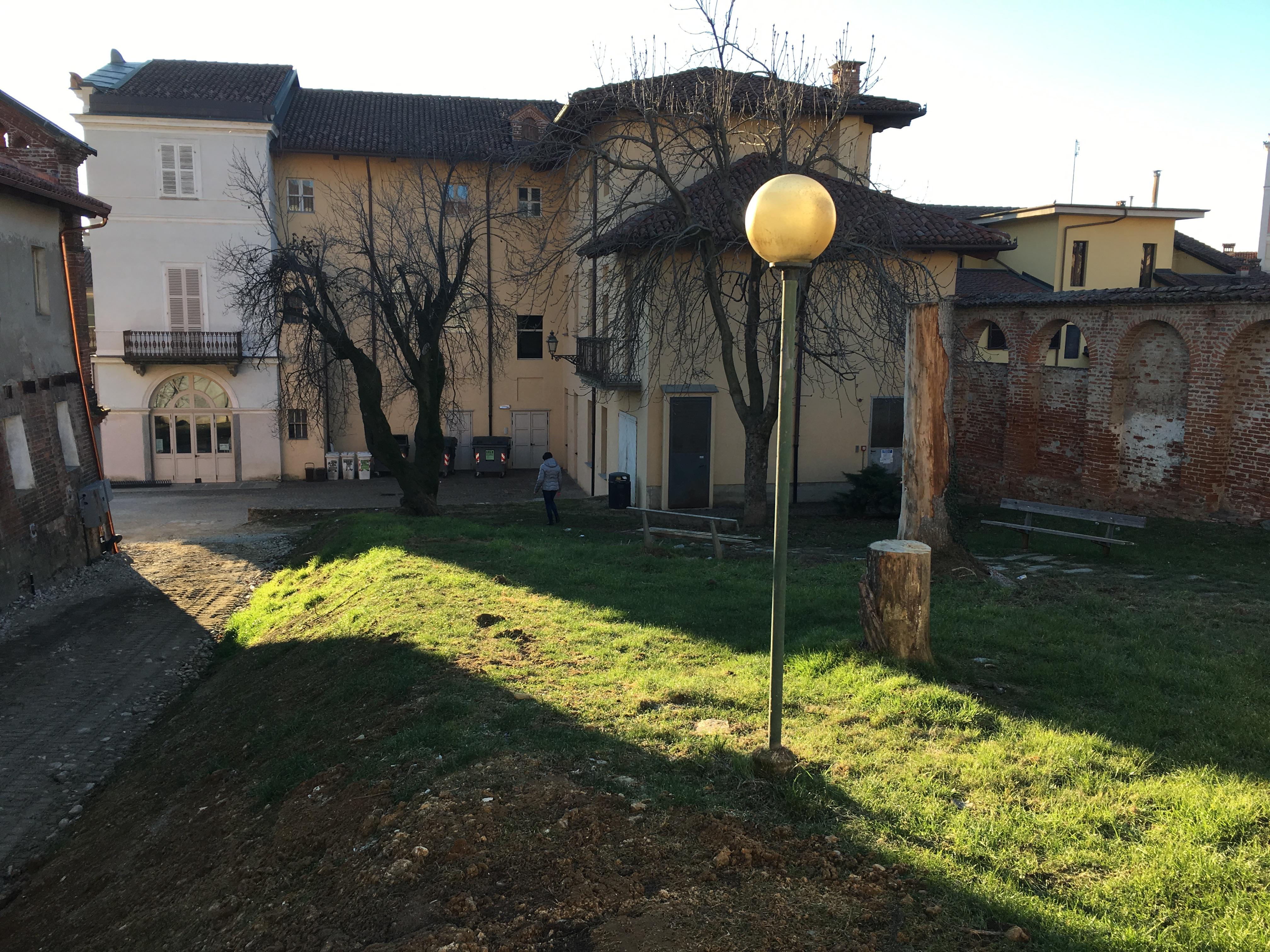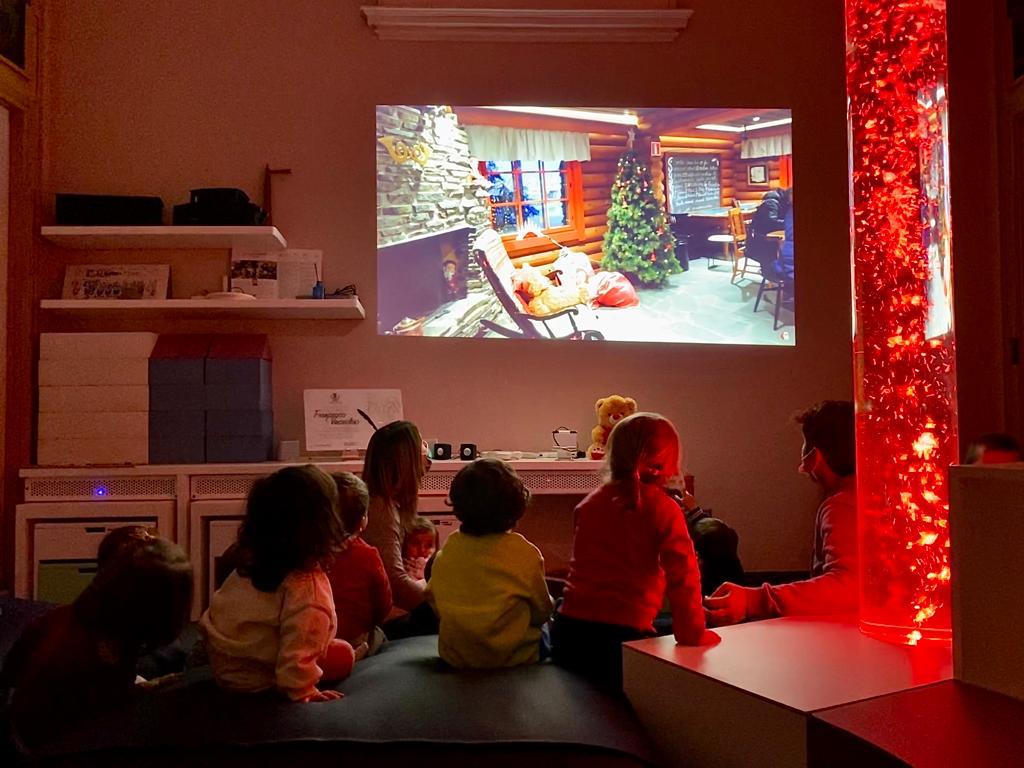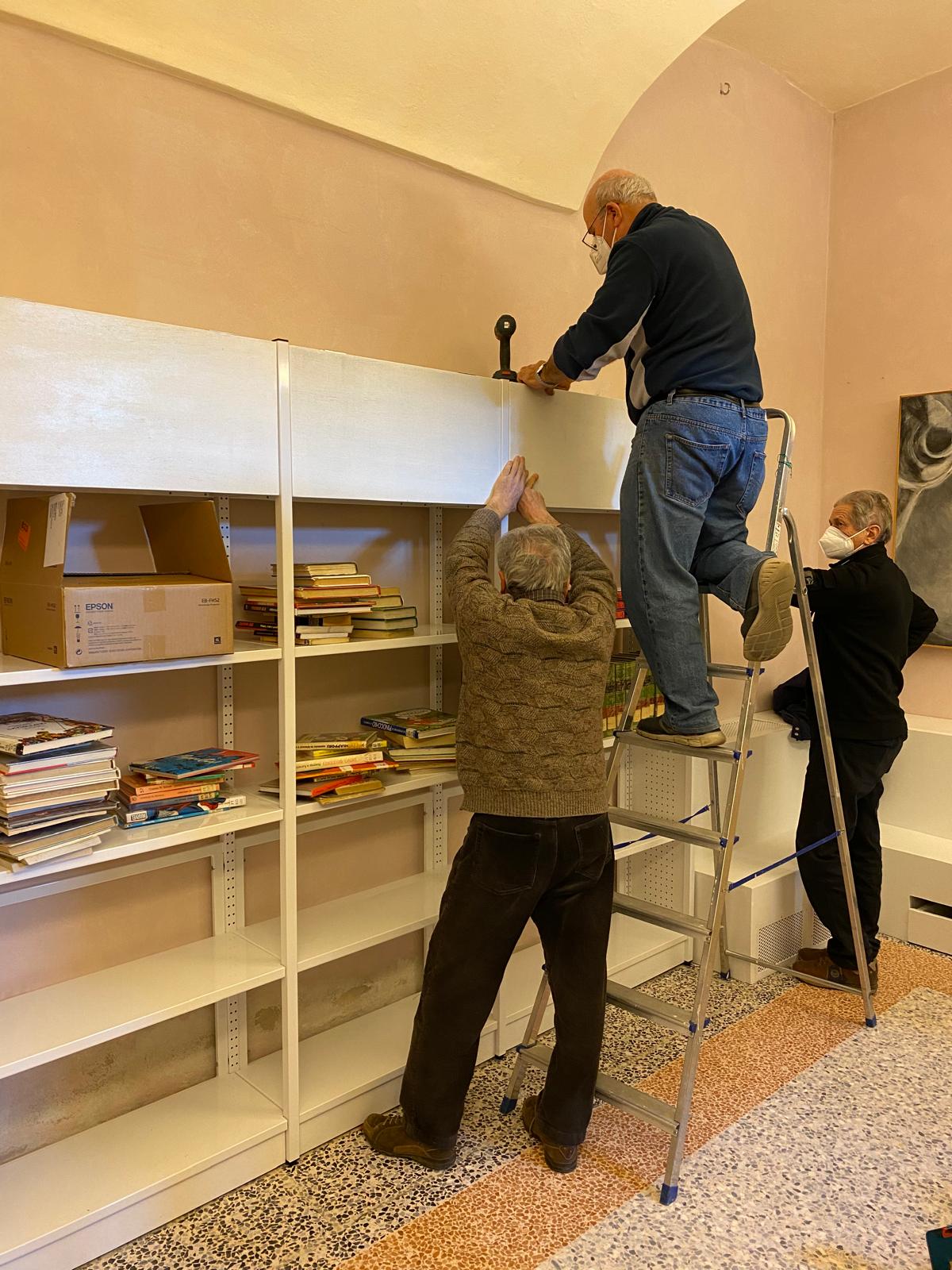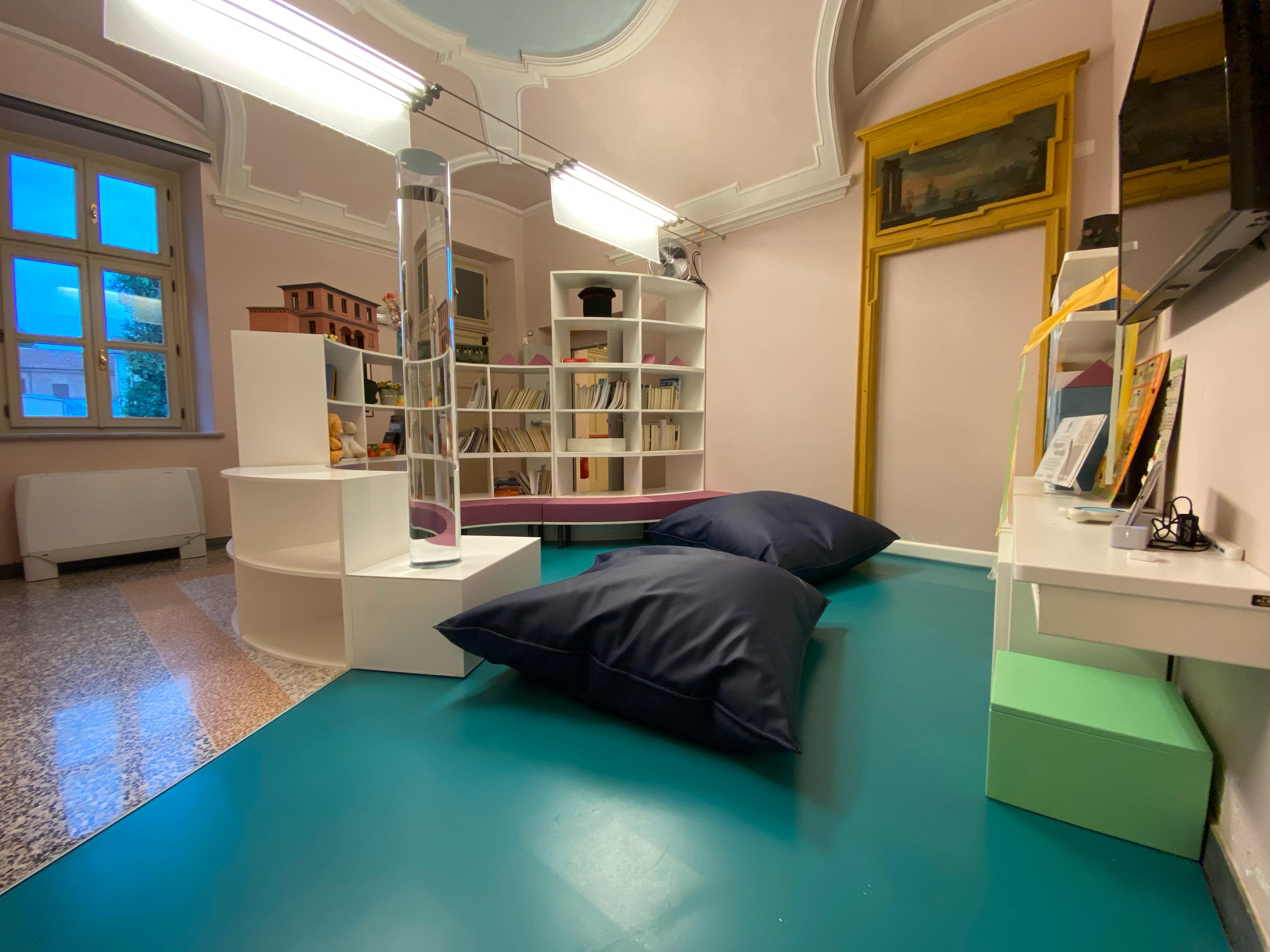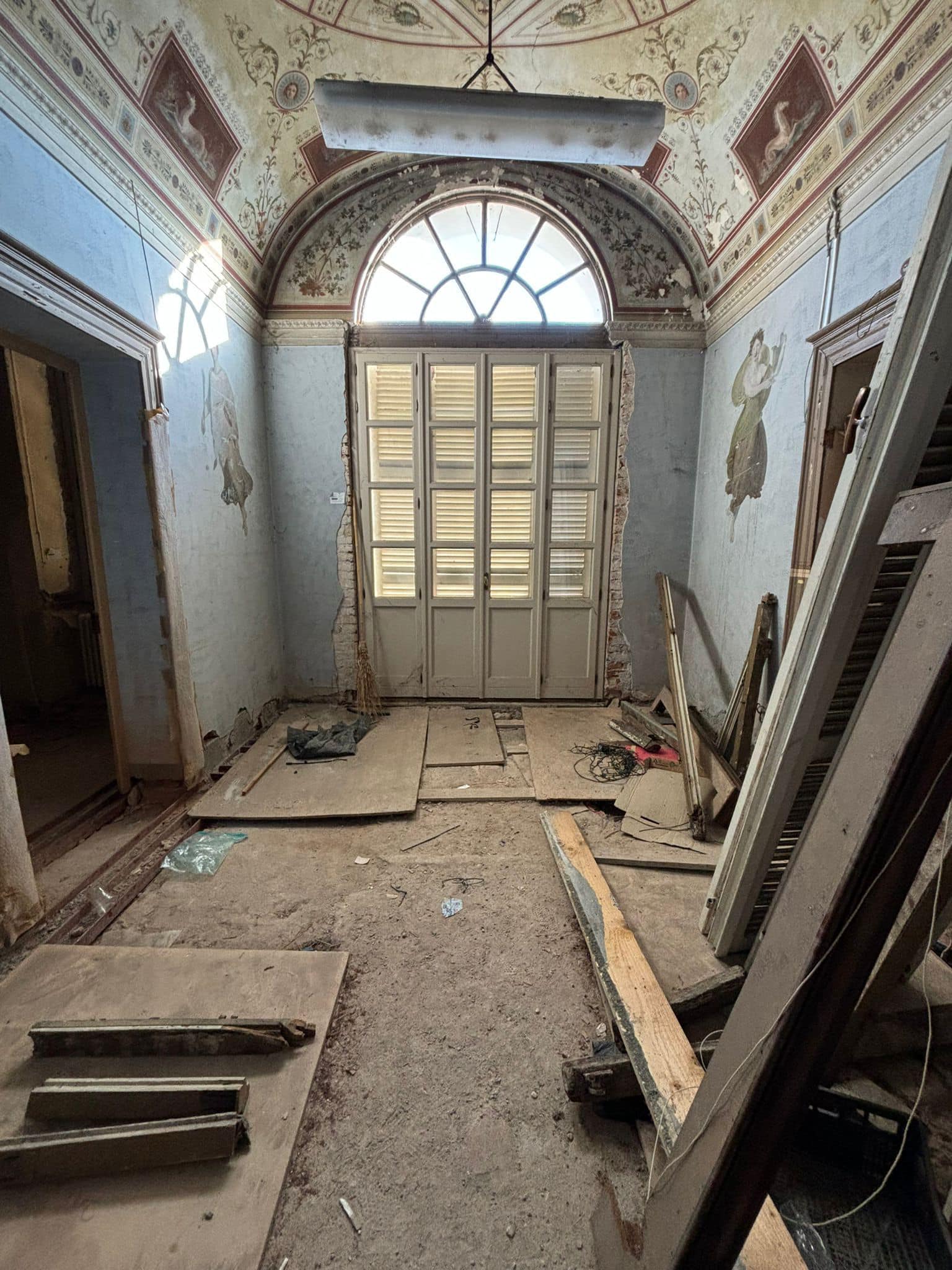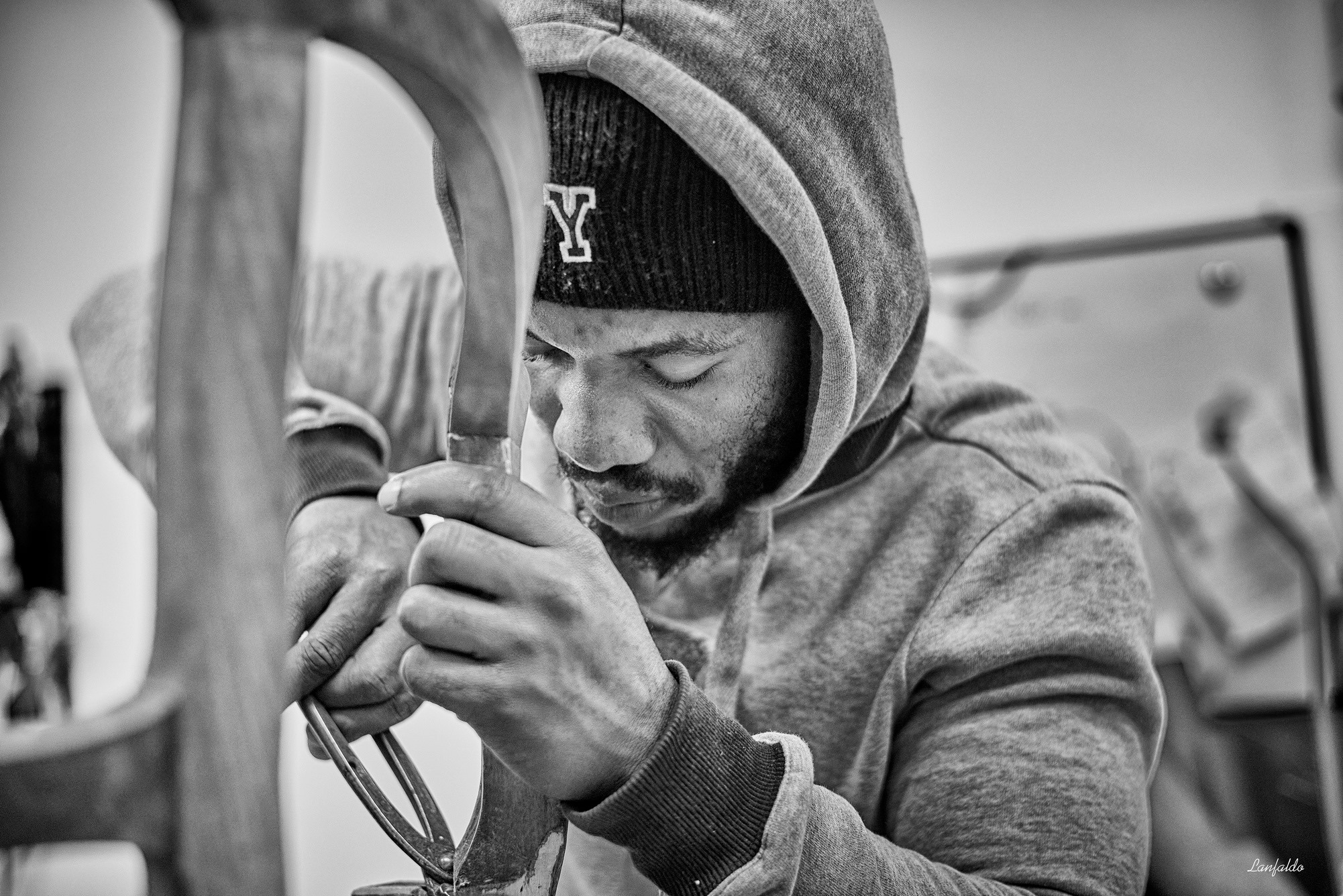Palazzo Gallina BIS: a Community Center
Palazzo Gallina: A beautiful inclusive and sustainable Community Center
Palazzo Gallina is now a lively and dynamic hub, the cultural heart of Marene. Originally a noble residence, it now houses the Municipal Library, reflecting the town's strong community spirit. Thanks to civic engagement, redevelopment works will be completed in 2025, expanding services and activities. This thriving environment fosters creativity and supports projects like “I colori del vento,” a program promoting accessible and inclusive reading.
Italy
Palazzo Gallina, via Stefano Gallina 42, 12030 Marene (Cuneo - Italia)
Early initiative
Yes
Yes
Yes
No
No
004117: Marene (IT)
In January 2025, renovation works began on the first and second floors of Palazzo Gallina, an 18th-century building that was once the home of the Gallina family, nobles connected to the Royal House of Savoy. Today, it is public property. In 2010, significant safety measures were undertaken, leading to the establishment of the Municipal Library.
The Library is the only cultural institution in this village of 3,000 inhabitants. It is managed in collaboration with the "Amici della biblioteca" Association, a non-profit organization that has been promoting reading as a tool for fostering social inclusion and increasing the cohesion inside the community since 1998. As of 2024, the Library contains over 20,000 books for children, teenagers and adults.
Over the years, the Municipality has allowed members of the Association to express their spirit of enterprise through numerous projects. Since 2018 Marene has held the national acknowledgement of "Reading City", a recognition of its commitment to cultural divulgation.
In 2019, the project "I colori del vento," a multi-year program promoting a facilitated access to reading, with a special regard toward people with disabilities, was awarded as one of the best initiatives at a national level. This enabled the renovation of the ground-floor spaces and the consequent creation of a study room for teenagers and of a new area dedicated to children aged from zero to eleven years old. This space features an innovative multisensorial room inspired by Snoezelen rooms, designed to use new technologies in order to give a “tridimensionality" to the readings and stimulate new feelings in the visitors.
With this new project the goal is to continue in this direction, to strengthen the role of the Library and to create new pleasant and inclusive spaces. Thanks to some volunteers, the new furniture for the first and second floors will be designed and the internal park will be renovated in order to create a multisensorial garden
The Library is the only cultural institution in this village of 3,000 inhabitants. It is managed in collaboration with the "Amici della biblioteca" Association, a non-profit organization that has been promoting reading as a tool for fostering social inclusion and increasing the cohesion inside the community since 1998. As of 2024, the Library contains over 20,000 books for children, teenagers and adults.
Over the years, the Municipality has allowed members of the Association to express their spirit of enterprise through numerous projects. Since 2018 Marene has held the national acknowledgement of "Reading City", a recognition of its commitment to cultural divulgation.
In 2019, the project "I colori del vento," a multi-year program promoting a facilitated access to reading, with a special regard toward people with disabilities, was awarded as one of the best initiatives at a national level. This enabled the renovation of the ground-floor spaces and the consequent creation of a study room for teenagers and of a new area dedicated to children aged from zero to eleven years old. This space features an innovative multisensorial room inspired by Snoezelen rooms, designed to use new technologies in order to give a “tridimensionality" to the readings and stimulate new feelings in the visitors.
With this new project the goal is to continue in this direction, to strengthen the role of the Library and to create new pleasant and inclusive spaces. Thanks to some volunteers, the new furniture for the first and second floors will be designed and the internal park will be renovated in order to create a multisensorial garden
Inclusivity
Civic engagement
Care of common good
Circular economy
Empowerment of citizens
The project aims to remain socially, environmentally and economically sustainable in the future, just as it is today and has been in the past.
The initiative is the result of a public-private collaboration aimed at providing citizens with a high-quality service whilst avoiding wasting valuable economical and technical resources. Over the years strategic partnerships have been established with various local stakeholders, which led to forming working groups consisting of people with different skills in social, managerial and educational fields. This project seeks to keep fostering new collaborations, including one with Blu-lab, a social carpentry workshop in the nearby city of Savigliano, that supports people in difficulty (migrants, individuals with disabilities, those at risk of social exclusion and people with low educational level). The workshop does not create furniture using new raw materials, it uses recycled ones instead and gives new life to old furniture donated by private citizens.
Today, as in the past, one of the main objectives is also to enhance the architectural heritage and its historical and cultural beauty -such as Palazzo Gallina- thus discouraging the abandonment of these sites in favor of unnecessary land consumption.
Like previous enterprises this project places great emphasis on the careful use of limited economic resources, adopting an investment-oriented approach aimed at creating social impact and fostering an ecosystem that generates new ideas. At the same time, efforts will be made to define cultural services and products that will be able to self-sustain in the future.
The initiative is the result of a public-private collaboration aimed at providing citizens with a high-quality service whilst avoiding wasting valuable economical and technical resources. Over the years strategic partnerships have been established with various local stakeholders, which led to forming working groups consisting of people with different skills in social, managerial and educational fields. This project seeks to keep fostering new collaborations, including one with Blu-lab, a social carpentry workshop in the nearby city of Savigliano, that supports people in difficulty (migrants, individuals with disabilities, those at risk of social exclusion and people with low educational level). The workshop does not create furniture using new raw materials, it uses recycled ones instead and gives new life to old furniture donated by private citizens.
Today, as in the past, one of the main objectives is also to enhance the architectural heritage and its historical and cultural beauty -such as Palazzo Gallina- thus discouraging the abandonment of these sites in favor of unnecessary land consumption.
Like previous enterprises this project places great emphasis on the careful use of limited economic resources, adopting an investment-oriented approach aimed at creating social impact and fostering an ecosystem that generates new ideas. At the same time, efforts will be made to define cultural services and products that will be able to self-sustain in the future.
The redevelopment works at Palazzo Gallina, which have just begun, aim to preserve and valorize the local cultural heritage. The Palazzo is one of the most beautiful and evocative buildings in the village of Marene, both externally, with its stunning neoclassical façade, and internally, where ancient mural paintings blend harmoniously with modern furnishings.
Over the years librarians have also worked to make sure that citizens have access to an attractive and friendly environment by acquiring furnishings or crafting some, drawing inspiration from the best libraries in Europe. The furniture in Marene’s Library has been fashioned with the support of local architects and artisans who have voluntarily offered their services to the community.
The use for free of the multisensorial room also aims to evoke new emotions in visitors through the power of artistic beauty.
Moreover, special attention will be given to the aesthetics, which will reflect in the careful styling of both the interior spaces (the rooms on the first and second floors) and the multisensorial garden. As previously mentioned, the collaboration with Blu-Lab in Savigliano will be crucial, both in terms of aesthetics—thanks to the high quality of its handcrafted pieces—and of the social value of the creations.
The use of aromatic plants, colorful flowers, and flowering trees will make the sensorial garden a more enjoyable area while serving as a venue for new activities as well, activities that will ameliorate the multisensory experience of the community.
Over the years librarians have also worked to make sure that citizens have access to an attractive and friendly environment by acquiring furnishings or crafting some, drawing inspiration from the best libraries in Europe. The furniture in Marene’s Library has been fashioned with the support of local architects and artisans who have voluntarily offered their services to the community.
The use for free of the multisensorial room also aims to evoke new emotions in visitors through the power of artistic beauty.
Moreover, special attention will be given to the aesthetics, which will reflect in the careful styling of both the interior spaces (the rooms on the first and second floors) and the multisensorial garden. As previously mentioned, the collaboration with Blu-Lab in Savigliano will be crucial, both in terms of aesthetics—thanks to the high quality of its handcrafted pieces—and of the social value of the creations.
The use of aromatic plants, colorful flowers, and flowering trees will make the sensorial garden a more enjoyable area while serving as a venue for new activities as well, activities that will ameliorate the multisensory experience of the community.
All the spaces in Palazzo Gallina are fully accessible, they are in particular for people with reduced mobility. The renovation work, which will be completed in 2025, will also include the installation of an elevator in order to make the first and second floor easily accessible as well.
Even the activities promoted within the Library are conceived to be fully accessible by everyone. Together with the multisensorial room the Library has been equipped with a collection of Braille, tactile, and AAC (Augmentative and Alternative Communication) books that are available to everyone for free.
With the completion of the renovation in 2025 the community will benefit from new areas, including a study room for university students and additional rooms for organizing after-school programs and homework assistance. These services will be open to around 50 children, with priority given to those facing economic and social difficulties.
The inclusion of people with disabilities or those in exceptionally vulnerable conditions will be a key aspect in the process of creating new furnishings. The goal is to actively involve these individuals throughout the ideation and setup phases, turning the experience into an opportunity for both personal and professional growth.
Even the activities promoted within the Library are conceived to be fully accessible by everyone. Together with the multisensorial room the Library has been equipped with a collection of Braille, tactile, and AAC (Augmentative and Alternative Communication) books that are available to everyone for free.
With the completion of the renovation in 2025 the community will benefit from new areas, including a study room for university students and additional rooms for organizing after-school programs and homework assistance. These services will be open to around 50 children, with priority given to those facing economic and social difficulties.
The inclusion of people with disabilities or those in exceptionally vulnerable conditions will be a key aspect in the process of creating new furnishings. The goal is to actively involve these individuals throughout the ideation and setup phases, turning the experience into an opportunity for both personal and professional growth.
The works on Palazzo Gallina will expand public spaces and enable the offer of new services for the community. By participating in this public call the wish is to secure adequate resources for the improvement of the interiors’ setup (furnishings, Wi-Fi connection, new technological devices) and to beautify the Library’s courtyard, transforming it into a multisensorial garden.
The intention is to actively involve the community in the generative process of this initiative, engaging them through non-profit organizations that will help imagine and create the spaces. This engagement would give a sense of self-determination and fulfillment to the citizens.
The intention is to actively involve the community in the generative process of this initiative, engaging them through non-profit organizations that will help imagine and create the spaces. This engagement would give a sense of self-determination and fulfillment to the citizens.
This project proposal is the result of a public-private collaboration promoted by the Municipality of Marene and several non-profit organizations active in the town and in the nearby city of Savigliano. The main promoters are the volunteers from the "Amici della Biblioteca" Association. Collaborations with the "Muovi le mani per Marene" Association will be very important. This group of retirees offers their skills and passion to help the community in the care of common goods.
In recent years, the Municipal Administration and the Municipal Library have promoted projects where the involvement of local stakeholders has been fundamental to upgrade the quality of the activities offered to their beneficiaries.
The "I colori del vento" project and the new after-school service have led to the creation of a heterogeneous working group, in fact they encouraged the sharing of personal experiences in the cultural, social, educational, and disability fields. The volunteers from the Library, its collaborators, the local school teachers and the recreational center operators are all involved. For the “accessible reading” project, the staff from the local nursing home are also participating.
Thanks to PNRR funding, the working group has been able to attend training courses where they learnt how to use the multisensory setup.
With the aim of setting up the new spaces that are to be donated to the community by the end of 2025, the operators from the Blu-Lab workshop will be involved. Over time, they have acquired expertise in engaging with people affected by disabilities and vulnerabilities in carpentry activities, achieving excellent results both aesthetically and functionally.
Like in other initiatives, a steering committee will be determined for this project and then coordinated by the Library manager; an appropriate monitoring system will be implemented.
The "I colori del vento" project and the new after-school service have led to the creation of a heterogeneous working group, in fact they encouraged the sharing of personal experiences in the cultural, social, educational, and disability fields. The volunteers from the Library, its collaborators, the local school teachers and the recreational center operators are all involved. For the “accessible reading” project, the staff from the local nursing home are also participating.
Thanks to PNRR funding, the working group has been able to attend training courses where they learnt how to use the multisensory setup.
With the aim of setting up the new spaces that are to be donated to the community by the end of 2025, the operators from the Blu-Lab workshop will be involved. Over time, they have acquired expertise in engaging with people affected by disabilities and vulnerabilities in carpentry activities, achieving excellent results both aesthetically and functionally.
Like in other initiatives, a steering committee will be determined for this project and then coordinated by the Library manager; an appropriate monitoring system will be implemented.
The redevelopment project aims to create a community center that brings life to the historic center through the dynamism and inventiveness of young people. With the opening of the new spaces, the new after-school service will be established and linked to the activities of the Library.
In addition to that, the creation of the new multisensorial garden within the courtyard aims to provide a new outdoor space where young people and residents will have a place to study and meet at any time. At the same time, this installation will allow for the development of new activities linked to the multisensorial room, encouraging new experiences in contact with nature.
The NEB resources will be used to create the furnishings for the new spaces and equip them with new technological devices (touch monitors, Wi-Fi, etc.). However, the goal is not only to purchase materials, but also to seize the chance of forging new social connections and creating opportunities for inclusion during the process of crafting the new furnishings. This will be achieved through the involvement of the Blu-Lab workshop.
In addition to that, the creation of the new multisensorial garden within the courtyard aims to provide a new outdoor space where young people and residents will have a place to study and meet at any time. At the same time, this installation will allow for the development of new activities linked to the multisensorial room, encouraging new experiences in contact with nature.
The NEB resources will be used to create the furnishings for the new spaces and equip them with new technological devices (touch monitors, Wi-Fi, etc.). However, the goal is not only to purchase materials, but also to seize the chance of forging new social connections and creating opportunities for inclusion during the process of crafting the new furnishings. This will be achieved through the involvement of the Blu-Lab workshop.
In this project, as in previous ones, the aim is to spend the resources using an investment-oriented approach, providing technical solutions that can generate new social connections and relationships within the community.
The investment in training activities also aims to ensure the sustainability of these actions in the future, for training the staff and providing them with new soft and hard skills would improve the beneficiaries' experience.
At the same time, the opportunity will be seized to create events that will highlight the contributions of all those involved, including people in vulnerable situations, such as individuals with disabilities or those experiencing psycho-social challenges.
The investment in training activities also aims to ensure the sustainability of these actions in the future, for training the staff and providing them with new soft and hard skills would improve the beneficiaries' experience.
At the same time, the opportunity will be seized to create events that will highlight the contributions of all those involved, including people in vulnerable situations, such as individuals with disabilities or those experiencing psycho-social challenges.
We believe that the entire initiative itself can be replicated. Much trust is placed in the psycho-social benefits that a multisensory installation within a public library could generate. The Marene case is the first experience of this kind in such spaces. Usually, Snoezelen rooms are set up in healthcare facilities or, more recently, in schools, targeting a limited audience. In Marene the goal was to create an experience that would be fully accessible to all citizens by breaking down any sort of economic barrier.
It is believed that the generative model that will produce the furnishings can also be replicated in other places and territories. Thanks to the collaboration with the "Muovi le mani per Marene" Association and the social carpentry workshop Blu-Lab, a dual objective will be achieved: on the one side, new furnishings and equipment for the redeveloped spaces, and on the other, a new group of people supported by and integrated in the community, ensuring indeed that they are not marginalized.
Furthermore, the intent is to define and reach a model of public library in a small community, open and active during the whole day, offering many services that go way beyond the sole book-lending service. This model should not be a standard, but rather a source of inspiration for other communities. With this intention, the volunteers and the entire team are available to share their experience with other organizations, also by the means of this award.
It is believed that the generative model that will produce the furnishings can also be replicated in other places and territories. Thanks to the collaboration with the "Muovi le mani per Marene" Association and the social carpentry workshop Blu-Lab, a dual objective will be achieved: on the one side, new furnishings and equipment for the redeveloped spaces, and on the other, a new group of people supported by and integrated in the community, ensuring indeed that they are not marginalized.
Furthermore, the intent is to define and reach a model of public library in a small community, open and active during the whole day, offering many services that go way beyond the sole book-lending service. This model should not be a standard, but rather a source of inspiration for other communities. With this intention, the volunteers and the entire team are available to share their experience with other organizations, also by the means of this award.
The initiative as a whole aligns with Goal 11 of the 2030 Agenda, which is to create sustainable cities and communities, making cities and human settlements inclusive, safe, and resilient. Focusing on the sub-goals, the project addresses target 11.4 (strengthening efforts to protect and safeguard the world’s cultural and natural heritage) and target 11.b (significantly increase the number of cities and human settlements adopting and implementing integrated policies and plans for inclusion, resource efficiency, and climate change mitigation and adaptation by 2020).
At the moment, the municipal administration is engaged in the redevelopment works of the first and second floors of Palazzo Gallina. In particular, workers are carrying out construction-related interventions, with a public investment of approximately €1,200,000.
Over the past few months, the Municipality -in collaboration with its partners- has been finalizing the details regarding the use of the new spaces. Plans include the expansion of the municipal library, the introduction of a new after-school and homework assistance service and dedicated spaces for local volunteer associations.
Thanks to the collaboration with Blu Lab, efforts will be made in the upcoming months to determine and to design the future furnishings, which will be designed and crafted by the beneficiaries of the project. At the same time, the municipal administration -together with some volunteers- will define the equipment to be purchased (monitors, computers, Wi-Fi network, shelves, etc.).
During this process, the values of the New European Bauhaus—sustainability, inclusivity and beauty—will be actively pursued and fulfilled.
The redevelopment work is expected to be completed by the end of 2025, while the new furnishings are expected to be set up by mid-2026, to then become accessible and available for the envisioned services.
Over the past few months, the Municipality -in collaboration with its partners- has been finalizing the details regarding the use of the new spaces. Plans include the expansion of the municipal library, the introduction of a new after-school and homework assistance service and dedicated spaces for local volunteer associations.
Thanks to the collaboration with Blu Lab, efforts will be made in the upcoming months to determine and to design the future furnishings, which will be designed and crafted by the beneficiaries of the project. At the same time, the municipal administration -together with some volunteers- will define the equipment to be purchased (monitors, computers, Wi-Fi network, shelves, etc.).
During this process, the values of the New European Bauhaus—sustainability, inclusivity and beauty—will be actively pursued and fulfilled.
The redevelopment work is expected to be completed by the end of 2025, while the new furnishings are expected to be set up by mid-2026, to then become accessible and available for the envisioned services.

